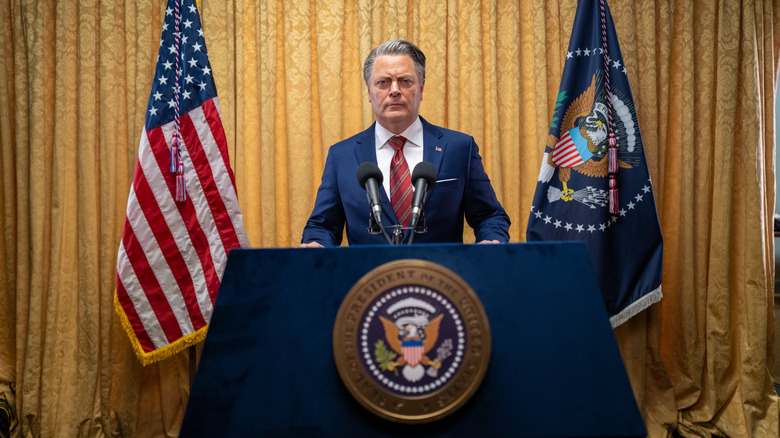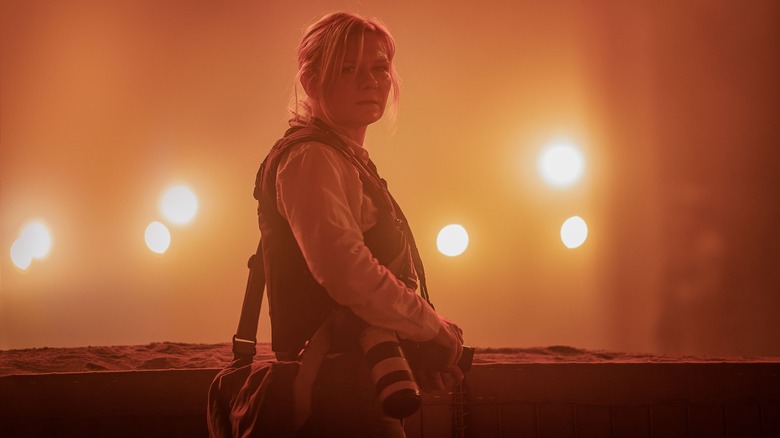Why Civil War Doesn't Explain Why The War Is Actually Happening [SXSW 2024]
Alex Garland's latest film, "Civil War" has a fascinating and quite eerie premise. At some point in the not-very-distant future, the United States has been torn apart by a civil war between three factions: the remnants of the U.S. government; a so-called Florida Alliance; and a Texas-California collision called the Western Forces. The seemingly random choice of factions, plus the idea of A24 making a war movie its first blockbuster, was intriguing even before the film's SXSW premiere inspired rave reviews (including one from /Film).
What's unusual about the film is that the titular civil war goes rather unexplained. Vagueness is the key to "Civil War," with Garland leaving enough blanks for the audience to fill in themselves.
Speaking after the premiere at SXSW, at a Q&A attended by /Film's Ryan Scott, Garland explained how the idea for the film came to him after getting COVID during the early days of the pandemic, which made him realize how "the world has changed in so many ways unexpected and problematic ways."
For Garland, the movie is intentionally vague because it "is intended to be a conversation," the filmmaker explained. What's more, Garland believes the answers simply don't have to be provided because "we know exactly why [the war] might happen. We know exactly what the fault lines and the pressures are, and I could have made it into something that explained every beat in the way that lots of movies do, and that's okay if they want to do that, that's fine. But it didn't feel appropriate for this."
One nation... or three
Indeed, "Civil War" gives the audience enough hints to figure out why the conflict began and why Texas and California would form a coalition, both based on our current geopolitics and the movie's version of America.
But it doesn't really matter why things began, because the conflict is about to end. The film is a race toward Washington, DC, to interview the president before he is removed from power. By throwing the audience at the tail end of the conflict, "Civil War" gets enough leeway to avoid needing to focus on the why of the conflict, but the what. What matters is not the reasoning or the context, but that there is a war inside the borders of the United States. As Kirsten Dunst's character says in the trailer, war correspondents spent their entire careers sending a warning home not to do this, and yet the country still fell into a violent, armed conflict.
"Civil War" is constantly echoing news footage from wars around the world, from the Middle East to Eastern Europe, specifically targeting people who say things like "that doesn't happen here." In fact, it very easily could.

